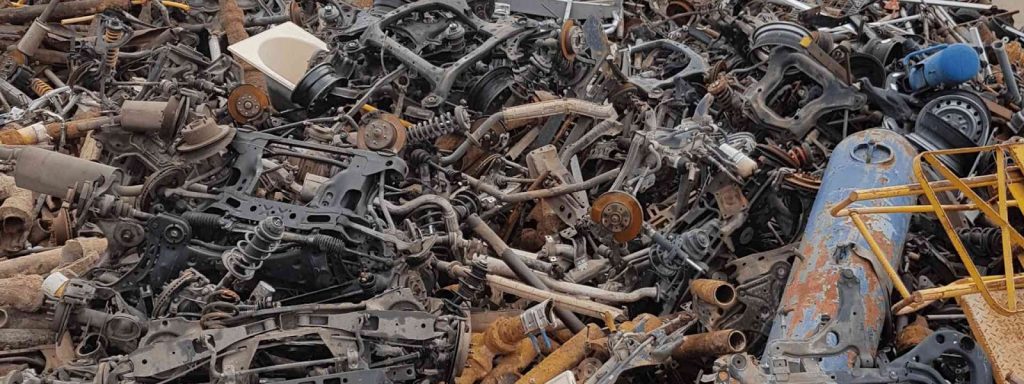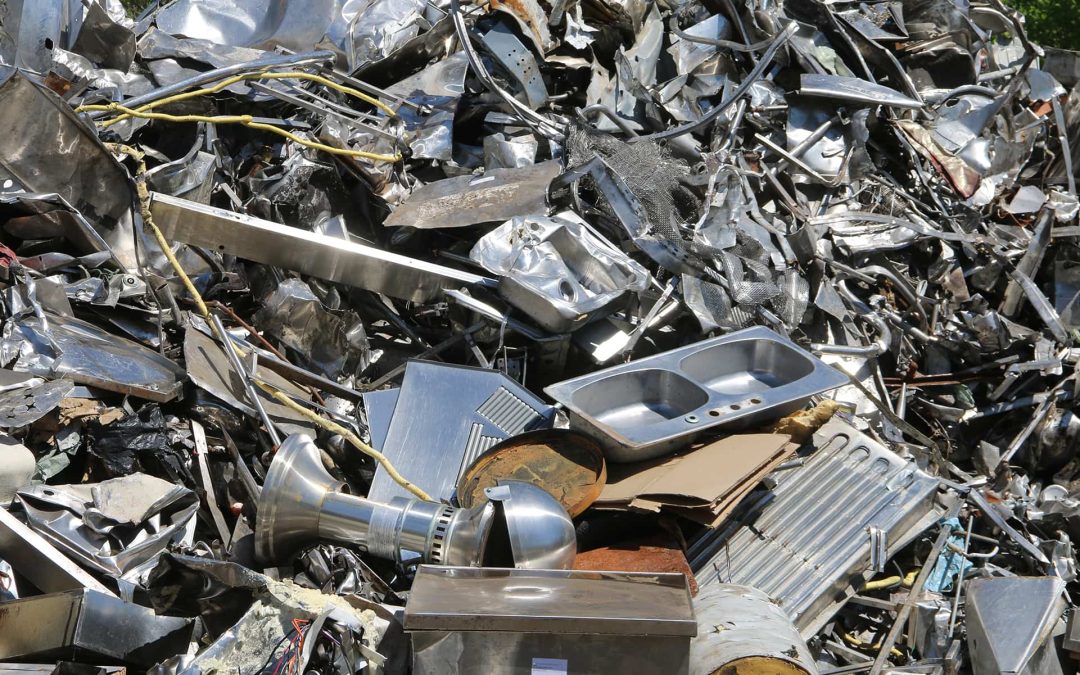When it comes to waste removal, All Metal and Steel Waste Removal is becoming increasingly popular due to its many benefits. This article examines the advantages of using all metal and steel waste removal, such as cost-efficiency, secure disposal, and environmental friendliness.lt offers a safe and effective means of disposing of unwanted metals and steel without worrying about their impact on the environment or other people’s safety.
How do you get rid of Metal Waste?
Metal waste is an environmental hazard that requires careful disposal and management. It can come from various sources, from industrial operations and manufacturing to everyday objects like appliances and electronics. Proper disposal of metal waste is important to prevent it from polluting the environment or posing a health risk to humans.
Recycling is the best way to get rid of All Metal and Steel Waste Removal. Many objects made out of metals, such as aluminum cans, are already accepted at most local recycling facilities. However, other non-recyclable materials are brought to a hazardous material facility for proper disposal.
Businesses generating large amounts of metal waste should work with licensed professionals experienced in safely disposing of metals and other hazardous substances. Additionally, they should be sure that the landfill they use complies with all state regulations regarding the safe transport and storage of metals and other hazardous wastes.
Where does most Scrap Metal go after leaving the Junkyard?
Scrap metal and steel waste removal is a common practice in many industries, but the question remains: where does it go after it leaves the junkyard? The answer is complicated, as there are multiple destinations for this type of material. In some cases, scrap metal can be recycled or sold to foundries to be reused in manufacturing. Additionally, some scrap yards will send their materials off to salvage yards or auto-parts stores that specialize in repairing old cars and other vehicles.
The most common destination for scrap metal is likely a steel mill, where large amounts of material are processed into new products. This process involves melting the scrap materials and using them as raw materials for new items such as construction beams and automotive parts. These mills may also produce valuable metals, such as copper or aluminum, that can sell on the open market.
How does Metal Waste affect the environment?
Metal waste is a major environmental issue that has received increasing attention recently. The presence of metal products, and their consequent disposal, can cause serious damage to the environment and human health. From increased pollution levels to contamination of soil and water sources, metal waste affects the environment in multiple ways.
The most significant consequence of All Metal and Steel Waste Removal is air pollution. Metal products release harmful chemicals when burned or exposed to high temperatures, increasing pollutants like particulate matter and damaging human health.
Additionally, burning metals can lead to acid rain, which causes damage to crops and foliage, leading to deforestation and soil degradation over time. Moreover, metals are non-biodegradable materials and can stay in landfills for centuries if not recycled properly.

Which metal causes harmful effects?
All Metal and Steel Waste Removal can have serious and harmful environmental effects. Many types of metal, including lead, arsenic, cadmium, and mercury, can cause health problems when released into the air or contaminate water supplies. Not only can these metals be toxic to humans, but they can also harm marine and plant life.
Although some metals naturally occur in the environment, most of the metal waste that causes environmental damage results from human activities. Mining operations release large amounts of heavy metals into the soil and water sources nearby. In addition to mining operations, industrial processes such as burning fossil fuels emit toxins that settle on land and water sources nearby.
Improperly managed scrap yards may also release metal waste when items are melted down or kept outside for long periods in all weather conditions without proper protection from rain leaking through or animals urinating on them.
What happens if we don’t recycle metal?
Metal recycling is important in preserving our environment and conserving natural resources. However, if we don’t recycle metal, it will have many environmental consequences.
Firstly, because metals are non-renewable resources, they cannot be replaced once used. Therefore, if All Metal and Steel Waste Removal is not recycled, it will become scarce over time and eventually run out. Furthermore, it would have serious economic implications due to the reliance on metal resources worldwide for construction and manufacturing activities.
Secondly, without metal recycling, there would be increased pollution in landfills and oceans due to discarded metal objects like cans or packaging materials. Metals such as aluminum can take up to 500 years to break down naturally in the environment, making them a major source of long-term contamination if not recycled properly.
Benefits of Metal and Steel Scraping:
Load N Go is a leader in metal and steel scraping services. Our team of experienced professionals is dedicated to providing the best solution for your metal and steel scrap needs. We understand that metal and steel scraping can be daunting, but our experts have the knowledge and experience to make it as easy as possible.
At Load N Go Rubbish Removal Company there are many benefits to using our All Metal and Steel Waste Removal scraping services. Our team will provide you with an efficient process for safely collecting scrap materials from your facility without creating any disruption or delays in production.
In addition, our service helps reduce waste by recycling materials instead of disposing of them in landfills, thus helping to protect the environment from harmful pollutants. Furthermore, we offer competitive rates so you can maximize your profitability while minimizing costs associated with other disposal methods.

